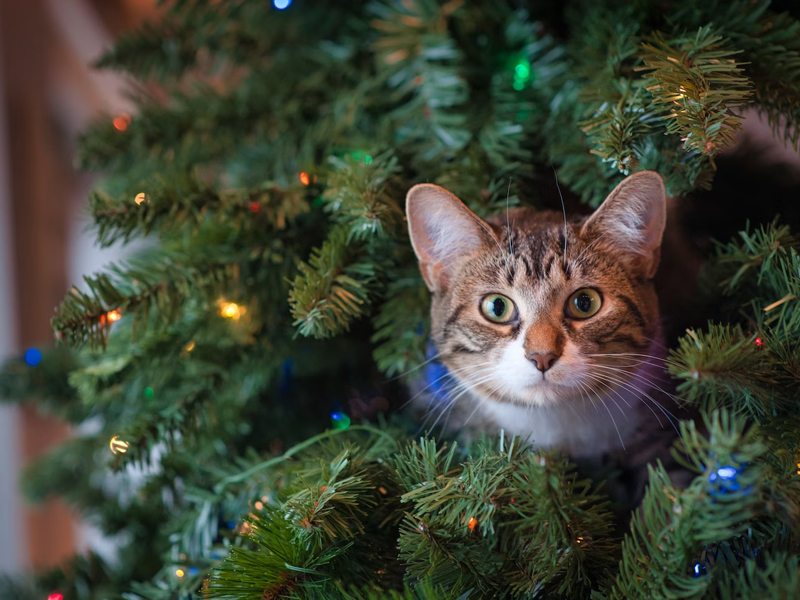
Holiday dangers for your pets, from tinsel and poinsettias to Xylitol

 (Dec. 9, 2023) — Last month, I talked a bit about the perils of certain holiday foods that can be bad for pets. As we get further into the holiday season, a few other issues come to mind.
(Dec. 9, 2023) — Last month, I talked a bit about the perils of certain holiday foods that can be bad for pets. As we get further into the holiday season, a few other issues come to mind.
Though tinsel is a fun and festive addition to Christmas trees, curious cats and occasionally dogs consider tinsel a great, readily available toy on that fun climbing gym you just erected. While tinsel appears harmless, if ingested, it can cause serious damage to the intestinal tract that often requires surgical intervention. If you opt to add tinsel and have young, curious or mischievous pets, you may need to fence off your tree or elevated it out of their reach.
A traditional Christmas plant that is toxic if ingested is the poinsettia. It can cause oral irritation and vomiting that is usually self-limiting, thank goodness. Another festive flower to look out for would be the lily, which is more common at Easter. Lilies are very toxic to cats. Any part of the lily can cause severe damage to the kidneys, even to the point of kidney (renal) failure.
Guests in the home might unwittingly expose a pet to possible dangers. Make sure to restrict a pet’s access to purses, backpacks or suitcases that might contain sugarless gum, breath mints, medications, or even personal items such as underwear, socks and used tampons or sanitary pads. And remember to keep bathroom garbage cans out of reach. Even the most pet-proofed home can be unwittingly sabotaged by a well-meaning guest.
Sweetener
I want to take a closer look at sugarless gum, breath mints, toothpaste, etc., and a sneaky substance called Xylitol. It’s the sweet flavoring that makes sugar-free products taste sweet and is healthy for people to ingest. Xylitol can also be found in such products as peanut or almond butter, yogurt and many other products labeled sugar-free or specifically low-glycemic products.
Some medicines and supplements use Xylitol to make them more palatable, so make sure to check the label before giving a human supplement or medications to your pet or using sugar-free peanut butter or yogurt to hide medicines for your pet to take.
Xylitol is extremely toxic to dogs and cats and can rapidly lead to severely low blood sugar by stimulating insulin release. It can also cause liver failure. It is absolutely deadly to pets even if ingested in modest doses.
If your pet has a possible exposure to Xylitol, you must seek immediate veterinary care. Time is of the essence.
I hope awareness of these potential perils will give you a leg up on protecting those furry members of your family this holiday season.
Email comments to drmccabevet@gmail.com.

Micki McCabe
Micki McCabe, DVM, DACVIM, FAAVA, is a long-time Clayton resident. The recently retired local veterinarian has an interest in internal and integrative medicine.
